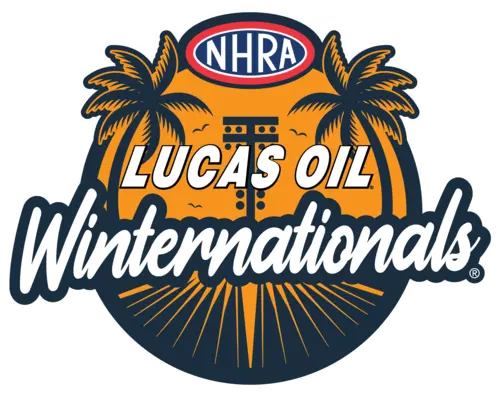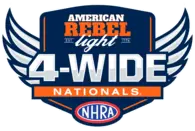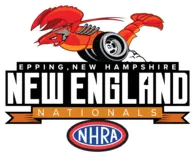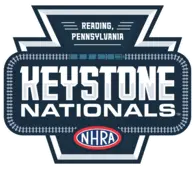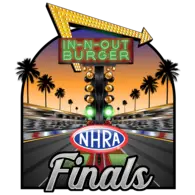

Frank Oglesby and the Mello Yello Mustang

Fans at the recent Chevrolet Performance U.S. Nationals got to witness a special moment that hasn’t been seen on the dragstrip for almost 30 years: a Funny Car flying the colors of Mello Yello soft drink, the title sponsor of NHRA’s biggest and richest series. Reigning world champ Del Worsham flew the MY colors on his DHL Toyota and took the car all the way to the final before falling to Matt Hagan.
The last time fans saw a Mello Yello-branded flopper at a national event was 1979, when Frank Oglesby was sponsored by the brand on his Mustang entry. I did an interview with Oglesby on the subject several years ago, right after Mello Yello replaced Full Throttle as the series sponsor, but for some reason I never published the story, and in the wake of the Worsham Indy effort, this seems like a good time for it to resurface.

Oglesby, whose roots in the class go back to the very beginning and his association with pioneers like Don Nicholson, Don Gay, and Arnie Beswick, flew the Mello Yello colors on his Mustang Funny Car for two seasons — 1979 and 1980 — at national events and match races alike to help introduce the then-new soft drink to the world.
Oglesby, who was a part of Nicholson’s Mercury teams in the 1960s, earned enough friends in Dearborn, Mich., to end up with his own Ford deal to field a Mustang Funny Car dubbed Quarterhorse.
“I was able to put together several small/regional deals to match race my Quarterhorse car but never had the national sponsorship needed to run national events,” he told me.
Then a chance conversation with one of young crewmember forever changed his life.

“The father of a kid who worked for me came by one day and told me he had talked to guy while waiting on the dentist who told him Coke was about to introduce a new soft drink, and he handed me a business card,” he remembered. “Martin Murphy was an account executive at McDonald & Little, at the time the hottest ad agency in the Southeast, and all of the Coca-Cola advertising was handled out of New York, so this obviously was a brand-new and completely different deal.
“As this was 50 miles from my house, I decided that a walk-in cold call was the best plan, so that's what I did.”
Murphy was not thrilled with the unexpected call but gave Oglesby this requested three minutes to convince him otherwise.
“Thirty minutes later, we went to meet John (whose last name escapes me), the brand-new Mello Yello brand manager, who liked my message but had never heard of a nitro Funny Car or NHRA for that matter.
“I had been at several meetings at Coke with [Nicholson] about 10 years previously, and one of the guys I had met had climbed the corporate ladder and was about four rungs above John's boss, so I played on that fact for a second meeting to flesh out the marketing plan for a formal presentation. Martin and I went back to his office, where I told him he was putting both himself and McDonald & Little on the line, and if he wanted to be the hero, he had better help me.”

A Mello Yello-schemed version of Oglesby’s car was skillfully created (remember, this is pre-PhotoShop) from an original 8x10 while Murphy and Oglesby set about creating a two-page list of bullet points to present the next morning.
That meeting went well enough that Oglesby set up a meeting the following day at Atlanta Dragway for the brand manager, who was still unsure on exactly what a Funny Car was and not overly thrilled with the nomenclature.
“I put him in the seat in the front parking lot next to the track office,” recalled Oglesby. “I fired it up and whacked the throttle several times; he crawled out grinning from ear to ear with tears running. We went into the track owner’s office and made the deal.

Steve Reyes
“As this was a 'trial' project, I made it my mission in life to promote both Mello Yello and drag racing during the remainder of the year. There was no big money being paid directly to the race team, but I was involved in every marketing strategy meeting between the ad agency and the Mello Yello brand manager and was given direct access to Coke's promotional dept. They paid for film clips, press kits, giveaway pictures, and I was given contact info for all 2,300 Coke bottlers as well as their list of print-media contacts (pretty much every newspaper in the English-speaking world).”
Although the car, truck, trailer, firesuit, parachutes, press kits, and fan pictures featured Mello Yello, the Mello Yello money mainly went into updated parts, and Oglesby continued to match race to earn the operating capital.
“I laid out the entire NHRA and IHRA event schedule as well as various locations for match race appearances, and because the Mello Yello marketing rollout was only in the southeast, the brand manager made the choice to use some IHRA national events as well as match-race appearances close to important Coke bottlers,” said Oglesby.
(Other than the Gatornationals, NHRA did not have any other national events in the southeast until the first Southern Nationals in 1981.)

“The marketing program we put together included shooting our own video of the car doing a long, smoky burnout and then zoom in and hold on the Mello Yello lettering while backing up slowly to the starting line,” he recalled. “Next, I called every sports director of every TV station in the track’s market area and said, ‘This is (insert PR guy’s name who should have been making the calls instead of me), and I represent Coca-Cola's new Mello Yello nitro Funny Car team that is racing in your area this weekend’, and then the magic phrase: ‘We have tape.' The tape sold the deal as all they needed was a minute interview with me, and their on-air talent shot in their parking lot and dubbed onto our tape.
“Usually we could appear on the 6 and 11 o’clock sport news of all three networks, and we did more than a hundred of them the first year as well as about 200 newspaper interviews. When you add the bottlers’ appearances and displays at the local Ford dealers to the mix, we barely had time to service the car. Did I mention this was with one race car and a crew of three, including myself?”
Oglesby’s sponsorship closed out at the end of the 1980 season after he declined a new bottler-heavy contract proposed by a new brand manager. Oglesby repainted the Mustang and continued to compete with it through 1983.
Today, Mello Yello is such an ingrained part of the fabric of the sport, and it’s fun to look back and think that it first started with a visit to the dentist’s office.





